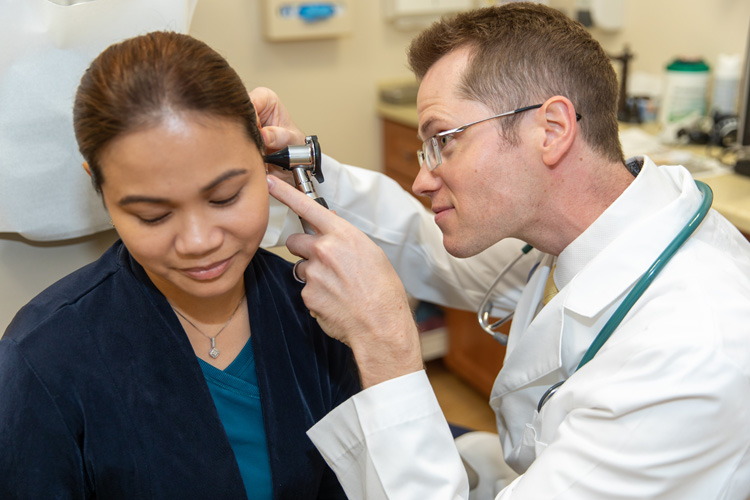
Everybody’s at one time or another had a cough and, until recently, people generally thought they knew what caused coughing and how best to treat it.
Now, though, medical opinion on the matter is shifting.
Studies from the National Institutes of Health, the Journal of Allergy and Clinical Immunology, the American Laryngological Association, the American Academy of Otolaryngology and ENT Today magazine all strongly suggest certain types of coughs are neurological in nature.
Never heard of a neurogenic cough? You’re not alone.
The concept “is new to a lot of people,” says Dr. Seth Tudor, an Otolaryngology/ENT specialist with Steward Health Care’s Sebastian River Medical Center who has been keeping up with the research.
If someone has a neurogenic cough, “it means the nerves inside of the voice box area have gotten hyper-sensitized and it results in having a chronic cough,” Tudor says.
That is, the root problem isn’t irritation or infection in the throat or larynx as previously thought, but rather a glitch in the nervous system.
The two most common general types of coughs are “acute” and “chronic,” and it’s the medical view of chronic cough that seems to be changing now.
According to NIH, “an acute cough is a cough that lasts for less than three weeks and is usually caused by an upper respiratory tract virus infection such as the common cold.
“A cough that persists for more than eight weeks is termed chronic. Chronic cough can persist for months and years and remains a difficult problem to manage because of our poor understanding of why a cough can be so persistent and also by the lack of effective antitussive therapies,” which, plainly put, is the medical term for cough syrups or cough drops.
“However,” NIH continues, “there has been recent progress both in our diagnostic approach and in our general understanding of the process of chronic cough,” which is most commonly called “neurogenic cough” in the medical community.
Tudor clearly feels this new research is on the right track.
“Oh yes,” he says. “I would say so. People are very familiar with peripheral neuropathy, where you get numbness and tingling in your feet.
“In diabetes, that’s from damage to the nerves from having a chronically elevated sugar level, but the same sort of thing can happen to other nerves, which can cause irritation in the throat” that has nothing to do with a cold or flu virus or irritating allergens.
Tudor says diagnosing a neurogenic cough “is a diagnosis of exclusion … that means you have to rule out everything else that can cause a cough before you can say, ‘Oh, this is just irritated nerves.’”
That diagnosis probably starts with a visit to your primary care physician followed by a chest X-ray and then a visit to a pulmonologist and possibly a visit to an allergist.
“It’s not a quick diagnosis,” Tudor explains. “We have to check out all of the systems that could be involved first. It’s not quick. Sometimes it takes months.”
That’s because, at present, there is no test specifically for neurogenic cough.
But there are medications to treat it.
“There are more and more well-accepted medications to treat this now,” Tudor says. “Something like Gabapentin, which is kind of the first line of treatment for neurogenic cough. A lot of us are using that more and more these days.
“There are some other options; the group of medications called tricyclic anti-depressants also are used for this. Not for anti-depressant effect, but for their effects on the nerves. They’re kind of neuro-modulators, which means that with these hyper-sensitized nerves, we slow them down a bit.”
NIH agrees with Tudor. It says, “recent success in the treatment of neurogenic cough with agents used for treating neuropathic pain such as gabapentin have had great success.”
So, if you’ve been bothered by a persistent cough for months or even years that no one could figure out, it might be wise to obtain a referral to see an Otolaryngologist or ENT like Tudor and talk about what’s new in treating a chronic neurogenic cough.
Dr. Seth Tudor is with Steward Health Care’s Sebastian River Medical Center. His office is at 12920 U.S. 1, Suite B in Sebastian. The phone number is 772-228-9808.



